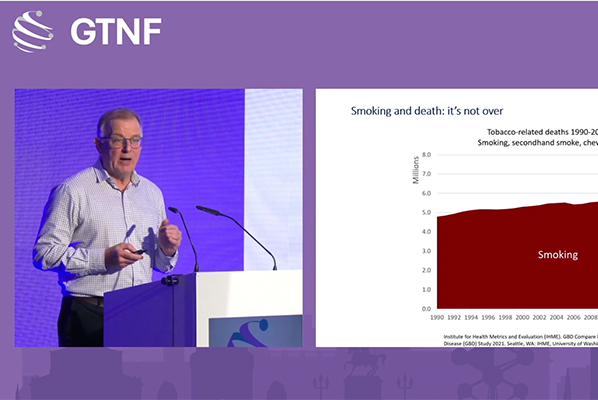As the Eleventh session of the Conference of the Parties (COP11) to the WHO FCTC opened yesterday, many tobacco/nicotine industry and tobacco harm reduction advocates watched the livestream intently, as only parts of the first and fifth days are scheduled to be made available to the public and media, a fact that draws significant disapproval from the event’s critics. Dr. Tedros Adhanom Ghebreyesus, director-general of the WHO opened the event, saying, “We are so used to hearing ‘tobacco kills us’, it no longer shocks us… If tobacco were a virus, we would call it a pandemic.” According to his X account, he called upon Parties to advance implementation, be aware of “tobacco industry tactics,” and invited Parties to join the FCTC.
Ghebreyesus’ speech was criticized on X by the World Vapers’ Alliance, which said, “First up, @DrTedros, first lie. He claims vapes and pouches are not harm-reduction products but harm production. Science and millions of former smokers strongly disagree. He further says there is no evidence for their net public health benefit. This is wrong. Every smoker who switches to less harmful alternatives gains clear health benefits. It’s not rocket science.”
One of the more prominent critics of COP11 is Clive Bates, the director of Counterfactual Consulting Limited, an organization that attempts to bring information from the closed meetings to public view.
“The FCTC COP has extremely poor openness, transparency, and viewpoint diversity,” Bates wrote on his website. “Delegates should welcome and demand a broader range of observers at COP meetings and greater transparency to avoid a situation where one billionaire funder can speak through dozens of ‘civil society’ organizations.”
Leading up to COP11, once the agenda was released, Bates offered a commentary on each section, which he summed up by saying, “In overview, the agenda is weak, with the greatest priority given to matters that fall outside the FCTC, and a contemptuous dismissal of Parties’ request for a balanced and objective discussion of the potential for tobacco harm reduction. The COP should focus on the big issue: How to drive down global smoking?”
Listed on the agenda for today (November 18), was the introduction of the Convention Secretariat report, titled “Implementation of measures to prevent and reduce tobacco consumption, nicotine addiction and exposure to tobacco smoke, and the protection of such measures from commercial and other vested interests of the tobacco industry in light of the tobacco industry’s narrative on ‘harm reduction’ (Articles 5.2(b) and 5.3 of the WHO FCTC) – proposed by Parties.”
“This is the worst FCTC COP paper I have ever read, and that is quite an achievement,” wrote Bates. “Two main issues should disturb Parties, whatever view delegates take on the substantive matters: 1. The contemptuous and dismissive attitude towards one or more Parties seeking a substantive discussion of a serious public health strategy. I have never seen a convention secretariat behave in this way in this or any other convention. 2. The quality of the analysis and understanding shown in the paper about the subject under discussion, tobacco harm reduction. This is dismissed as a form of tobacco industry interference. Yet, it has the support of several Parties, high-credibility organizations such as the Royal College of Physicians, and many of the world’s top independent experts.”



